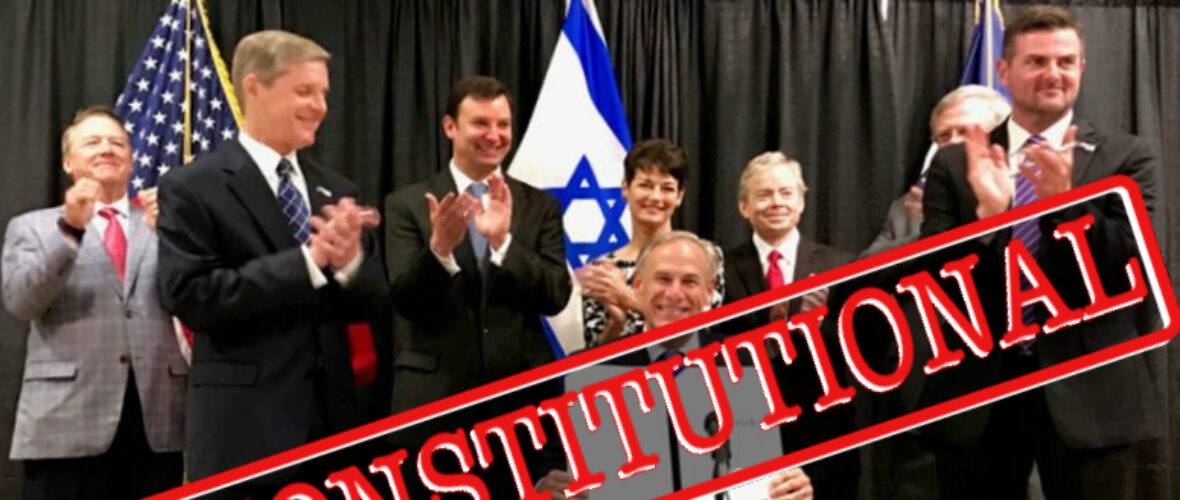Rechter in Texas verkoopt anti-BDS lobby zware tik.

In de Verenigde Staten heeft een federale rechter de wetgever van Texas terecht gewezen. De staat Texas had een anti-boycotwet aangenomen die tot doel had om op zijn minst de BDS (Boycot, Desinvesteren en Sancties) beweging het zwijgen op te leggen. De federale rechter kan wetten van afzonderlijke staten toetsen aan de Amerikaanse Grondwet.
Het debat in de VS rond Israël heeft op dit moment twee gezichten. Aan de ene kant is er een groeiende groep mensen die betwijfelt of een Palestijnse staat nog mogelijk is. Deze groep die duidelijk aanwezig is op de universiteiten en binnen de Democratische Partij, vreest een apartheidsstaat Israël en ziet het zionisme zoals dat in Israël vorm heeft gekregen als diepere oorzaak van het probleem. Aan de andere kant neemt de agressiviteit van de pro-Israëllobby duidelijk toe met als gevolg wetgeving door afzonderlijke staten zoals Texas, die tot doel heeft kritiek op Israël juridisch aan te kunnen pakken. De federale rechter heeft nu bepaald dat de Texaanse anti-BDS wet in strijd is met de grondwetsbepaling die de vrijheid van meningsuiting beschermt.
Het volledige vonnis (Engelse tekst) van de federale rechter is hier. Hieronder een samenvatting door Palestine Legal van de belangrijkste delen van de motivering van de rechter:
Palestinian rights, and the unconstitutionality of the anti-boycott law in Texas. Here In a huge boost for the movement for Palestinian rights, a federal judge blocked Texas’ anti-boycott law yesterday, finding it unconstitutional. Judge Pitman’s decision, like those of federal judges in Kansas and Arizona, rightly recognizes the constitutional protections afforded to political boycotts, including those advocating for are 10 gems from his decision:
- Political boycotts are on the ‘highest rung’ of First Amendment values
“Under Claiborne, Plaintiffs’ BDS boycotts are not only inherently expressive, but as a form of expression on a public issue, rest on ‘the highest rung of the hierarchy of First Amendment values.’”
- Speech concerned with global affairs is constitutionally protected
“There is no authority to support the notion that speech must be concerned with domestic affairs to enjoy constitutional protection; indeed, the Supreme Court has held just the opposite.”
- The Texas law engages in content- and viewpoint-based restrictions
“H.B. 89 singles out content and viewpoint for restriction. With respect to content, the statute targets only boycotts of Israel; Texas contractors remain free to boycott Palestine or any other country.”
- Texas wants to silence speech that it disagrees with
“The Court finds that H.B. 89’s plain text, the statements surrounding its passage, and Texas’s briefing in this case reveal the statute to be a viewpoint-based restriction intended not to combat discrimination on the basis of national origin, but to silence speech with which Texas disagrees.”
De redactie
Foto: Palestine Legal


